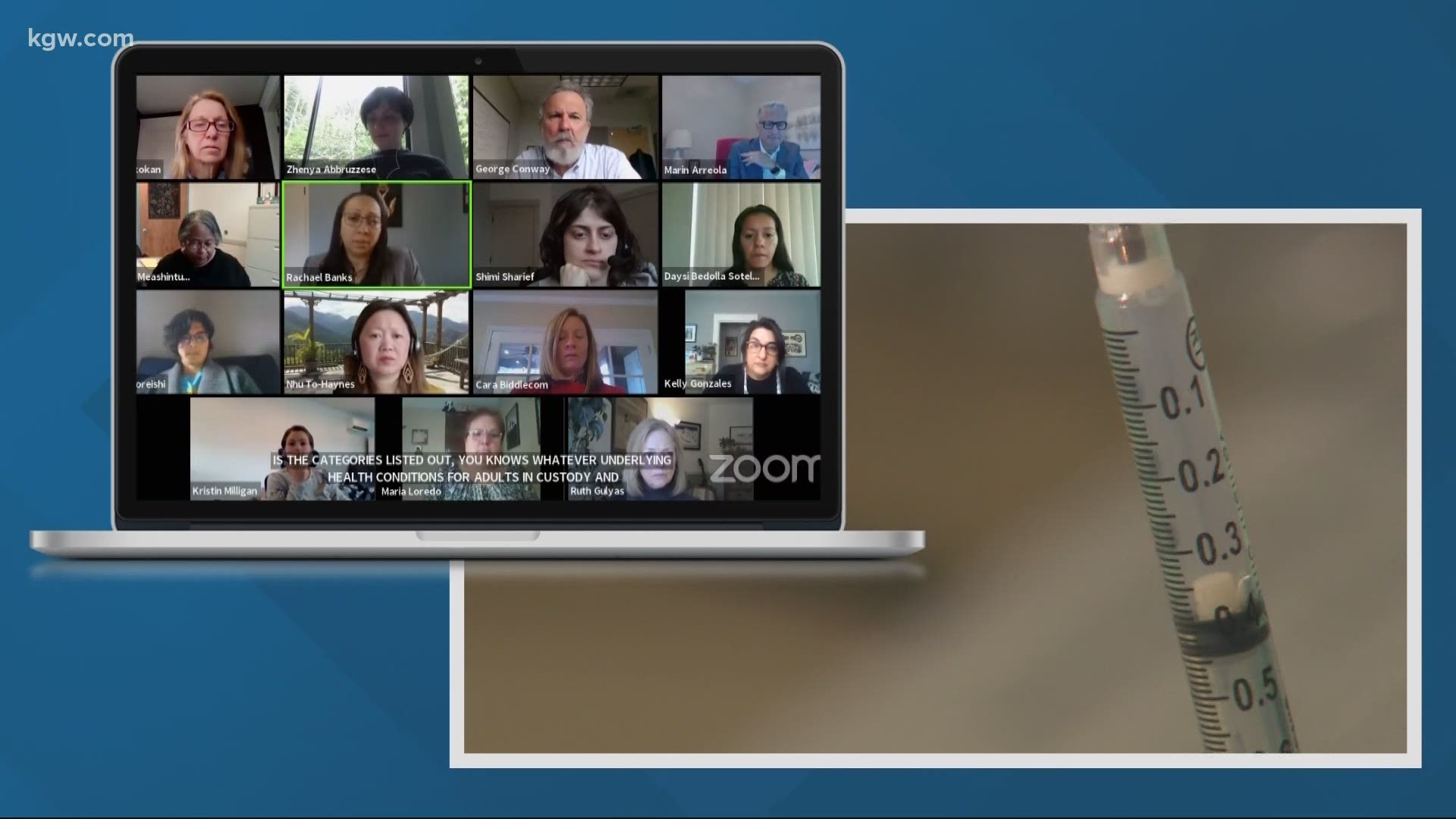OREGON, USA — The Oregon COVID-19 Vaccine Advisory Committee is fine-tuning its potential recommendations for the next people in line for the shot.
This week, the group reconvened to further discuss vaccination equity. The committee will present recommendations to the governor's office about the next vaccination groups after seniors and educators.
Last week the group voted on a longer list, prioritizing:
- BIPOC (Black, indigenous, people of color)
- Refugees
- People under 64 with chronic conditions
- People in custody
- Frontline workers
- Families in multigenerational homes
- People in low-income senior housing and other congregate living for people under 65
By the end of Thursday's meeting, the committee narrowed that list to BIPOC and people with chronic conditions.
Data show BIPOC communities have consistently been disproportionately impacted by health inequities. The COVID-19 pandemic is no exception, with many communities of color facing a greater number of cases and deaths per capita.
"These people are silent and unseen," committee member Debra Whitefoot said. She is with Nch'i Wana Housing, advocating for native populations in Oregon.
The Oregon Health Authority (OHA) has several representatives attend these weekly committee meetings to answer questions, provide data and discuss possible vaccine implementation methods.
After last week's meeting, OHA returned Thursday with numbers showing Oregon has more than 800,000 BIPOC and about 1.8 million people with chronic conditions. However, data did not show where these groups overlap.
"Chronic medical conditions such as diabetes, kidney failure, cancer, those are all more common in minority communities," said Dr. Kalani Raphael of the Oregon Pacific Islander Coalition.
Other members cited historic lack of health care access for BIPOC communities as a factor of disproportionate impact.
OHA suggested using census information and demographic data to target neighborhoods and areas with higher populations of vulnerable people. Committee members did not have much response to this suggestion.
Some members raised the question of legality in designating certain races for vaccination priority.
"We're not picking BIPOC communities ... because they're ethnic, Black or Latino," responded Marin Arreola of Interface Network. "[It's] because we've been impacted so severely by COVID ... To me, whatever we do is driven by data."
OHA said the committee's tentative idea was submitted to the Department of Justice for legal review.
For other members, the concern lies in convincing some BIPOC communities to trust in the system.
"We're talking as if we're all in line for a vaccine, and we're not," said Christine Sanders of Rockwood Community Development Corporation. She noted from her vantage as a Black woman, vaccine hesitancy is a hurdle within the Black community. Sanders encouraged more outreach and education efforts.
The committee also raised issues about enforcing vaccination priority, acknowledging the difficulty of proving people fall within the designated categories.
"Folks ... will game the system," said Shawn Baird of Metro West Ambulance Service. "But that's just the reality of how it works."
As the committee discussed potentially reordering the list to prioritize people with chronic conditions above or within the BIPOC category, member Kelly Gonzales disagreed.
"I think it whitewashes the structural racism and systemic racism that we are trying to center," said Gonzalez, who represents Oregon Health & Science University, Portland State University and the Urban Native community. "By centering on BIPOC people and then including chronic conditions, there is an overlap there.”
With doses of the COVID-19 vaccine on the line, the committee as a whole emphasized the need to be nimble.
"We can't let perfect get in the way of the good ... can't be too narrow about how we do it," said Sandra McDonough of Oregon Business & Industry. "Our goal is to get shots in arms and save lives."
The committee will again consider information discussed at the latest meeting before coming together on Tuesday for an optional session. The next full meeting will be Thursday as members consider potentially finalizing recommendations.

